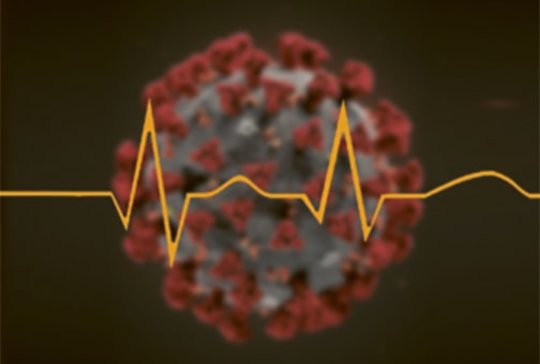[COVID-19-cardiology at spring, 2020]
VÁLYI Péter
APRIL 18, 2020
Lege Artis Medicinae - 2020;30(04-05)
VÁLYI Péter
APRIL 18, 2020
Lege Artis Medicinae - 2020;30(04-05)
Szöveg nagyítása:

[ ]
Lege Artis Medicinae
[Diabetes and depression are frequent comorbidities. They are a heavy burden by themselves, however, as comorbidities increase additionally the number of diabetes-related complications, morbidity, and mortality. In the background of interrelations, there are both well-known and hypothetical mechanisms. The aim of the present review is to outline these interrelations between antidepressants and diabetes and to discuss the effect of medications on carbohydrate metabolism respectively. Antidepressant treatment on the one hand may improve mood, cognitive function and medication adherence leading to an improved glucose metabolism, on the other hand through their metabolic side effects, they may worsen carbohydrate metabolism. Concerning metabolic side effects, selective serotonin reuptake inhibitors are the safest, while tricyclic antidepressants and monoamine oxidase inhibitors should be administered under close monitoring. Serotonin and noradrenaline reuptake inhibitors may deteriorate glycaemic control via increased noradrenergic activation. Novel antidepressants, however, have a neutral or positive impact on glycaemic measures. Screening for and temporally adjusted treatment of depression may decrease the risk of comorbidities generated complications. While caring for diabetic patients with depression, one should consider metabolic side effects of antidepressants and close monitoring of carbohydrate metabolism.]
Lege Artis Medicinae
[In the etiology of eating disorders (especially bulimia nervosa and binge eating) traumatic experiences (sexual, physical, emotional abuse, neglect) play an important role. Traumatization can have a serious impact, which is influenced by the parameters of the traumatization, risk and protective factors, and the resiliency of the traumatized patient. The consequences may lead to the development of specific psychiatric and somatic disorders, and may cause lifetime revictimization. The exploration of data related to the traumatization is essential in eating disorders as well. If traumatic expericences can be detected in the background of eating disorders, the targeted therapy of eating disorders while applying its specific elements should also follow the guidelines of the general trauma-therapy. Providing safety in therapeutical relationship is fundamental. The therapeutic options are extensive. Along with psychodynamically oriented therapies, the newer methods based on cognitive-behavioral therapy (e.g., dialectic behavior therapy, integrative cognitive analytic therapy) are also proposed. Hypnotherapy can also be useful. ]
Journal of Nursing Theory and Practice
[The events of the SARS-COV-19 pandemic have highlighted the need to focus on a number of tools and methods to improve the delivery of healthcare. Telemedicine can help in this innovation. The use of telemedicine during the Covid-19 pandemic was new in our country, but has long been used abroad. International experience, as well as that we gained during the covid pandemic, shows that the methodology is worth using in the domestic health care system in the future. The primary aim of this paper is to introduce the concepts related to telehealth. A sub-objective is to briefly review international practice. With our study we want to help to increase the knowledge of health professionals about telemedicine.]
Clinical Neuroscience
Neurocognitive aging and the associated brain diseases impose a major social and economic burden. Therefore, substantial efforts have been put into revealing the lifestyle, the neurobiological and the genetic underpinnings of healthy neurocognitive aging. However, these studies take place almost exclusively in a limited number of highlydeveloped countries. Thus, it is an important open
Clinical Neuroscience
Long Covid is a complex condition characterised by symptoms that persist for weeks and months after the Covid infection, accompanied by cognitive impairment that negatively affects daily life. Understanding this complex condition is important for the development of diagnostic and therapeutic strategies. This article aims to provide a comprehensive overview of cognitive impairment in long-COVID.
Clinical Neuroscience
To evaluate the long-term effects of the COVID-19 pandemic on seizure frequency and levels of mental distress in individuals with epilepsy and identify potential risk factors associated with increased seizure frequency. This is a cross-sectional study conducted in Türkiye in May 2021 by phone. Information on epilepsy syndromes, antiseizure medications, average seizure frequency, and drug resistance was obtained from medical records.
Clinical Neuroscience
Face masks are crucial parts of personal protective equipment (PPE) to reduce the risk of respiratory infections. The COVID-19 outbreak has increased healthcare workers’ use of face masks. This study aimed to evaluate changes in cerebrovascular response among healthcare workers using surgical and N95 respirator masks. 90 healthcare workers: 30 wearing surgical masks, 30 wearing N95 respirators, and 30 without masks were included.
Characterization of patients treated in the Miskolc Dialysis Center, regarding mortality, body composition and treatment modality
Epidemiological overview: frekvency of chronic kidney diseases and kidney replacement therapy
1.
Clinical Neuroscience
Is there any difference in mortality rates of atrial fibrillation detected before or after ischemic stroke?2.
Clinical Neuroscience
Neuropathic pain and mood disorders in earthquake survivors with peripheral nerve injuries3.
Journal of Nursing Theory and Practice
[Correlations of Sarcopenia, Frailty, Falls and Social Isolation – A Literature Review in the Light of Swedish Statistics]4.
Clinical Neuroscience
[Comparison of pain intensity measurements among patients with low-back pain]5.
Journal of Nursing Theory and Practice
[Fear of Falling among Geriatric Patients: a Narrative Review]1.
Clinical Neuroscience
Recurrent simultaneous central nervous system demyelination with possible peripheral demyelination / nodopathy in a seronegative patient2.
3.
Clinical Neuroscience
Predictors of pneumonia in stroke patients with dysphagia: A Turkish study4.
5.
Clinical Neuroscience
Effect of inflammatory response before mechanical thrombectomy on prognosis in stroke patients
COMMENTS
0 comments